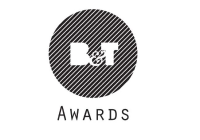What are Backlinks in SEO & Why Are They Important?

Contents
- What are Backlinks?
- Importance of Backlinks
- Types of Backlinks
- How to Build Quality Backlinks
- Common Backlink Mistakes to Avoid
- Best Practices for Backlinking Checklist
- Optimise Your Backlink Strategy with G Squared
Backlinks, also known as inbound links or incoming links, are links from one website to another and are essential for SEO. They serve as endorsements, signalling to search engines like Google that your content is valuable and trustworthy. The quality, relevance, and source of these links significantly impact your search engine rankings and, consequently, your organic search engine traffic.
Today, we will examine the importance of backlinks in SEO, the different types of backlinks, and best practices for building an excellent backlink profile. Understanding and leveraging backlinks can greatly enhance your website's performance and drive more organic traffic.
What are Backlinks?
Backlinks are hyperlinks from one web page to another. These links are important for SEO because they show search engines that your content is credible and valuable.
There are two primary types of backlinks: internal and external. Internal backlinks connect one page of a website to another page on the same site, helping users navigate and distributing link equity across the site. External links, however, connect a website to a page from another site. These are the most valuable for local SEO, as they indicate trust and authority from an outside source.
In practice, examples of backlinks include internal backlinks that connect relevant blog posts within the same site, guiding readers to more content. External backlinks are when a high-authority site, like a news outlet, links to your article as a reference, thereby boosting your site’s credibility and search engine ranking.
Understanding and effectively utilising these types of backlinks can drastically improve your website's SEO performance and overall online visibility.

Importance of Backlinks
Enhancing Search Engine Rankings
Backlinks are a key factor in search engine algorithms. They act as endorsements from other web pages, indicating to search engines like Google that your content is credible and reliable. The more high-quality backlinks you have, the better your chances of ranking higher on search engine results pages (SERPs). This is because search engines view backlinks as votes of confidence, indicating that other websites find your content useful and authoritative.
Increasing Website Traffic
Backlinks drive referral traffic to your site. When users click on links from other websites that lead to your content, it brings in new visitors who might not have found you otherwise. This influx of traffic can lead to higher engagement, more leads, and potentially more conversions. Also, traffic from high-authority sites tends to be more relevant and interested in your content, increasing the chances of meaningful interactions.
Building Domain Authority
Domain authority is a measure of your website's overall strength and influence in its niche. High-quality backlinks from authoritative sites contribute to building your domain authority. Search engines consider a site with strong domain authority more credible and relevant, which can help your content rank higher. As your domain authority increases, ranking for competitive keywords and attracting more organic traffic becomes easier.
Improving Brand Visibility and Credibility
Backlinks also enhance your brand's visibility and credibility. When your content is linked by reputable websites, it increases your brand's exposure to a broader audience. This helps build brand awareness and establishes your brand as a trustworthy and reliable source of information. Over time, consistently earning high-quality backlinks can significantly boost your brand's reputation and authority in the industry.
Types of Backlinks
Understanding the different types of backlinks is important for building a successful SEO strategy. Each type has its unique benefits and potential drawbacks.
DoFollow Links: These links pass on link equity (link juice) from the referring website to the linked website. They help improve a website’s search engine ranking, with high-authority sites providing significant SEO benefits.
NoFollow Links: These links include a specific HTML tag (rel="nofollow") that tells search engines not to follow the link. While they don't pass link equity, they can still drive traffic and increase brand visibility.
Natural Links: Earned organically without any direct effort to acquire them. These are the most valuable as they reflect genuine endorsements from other sites.
Manually Built Links: Acquired through deliberate link-building activities like outreach, guest posting, and digital PR. These links require effort but can be strategically targeted for maximum impact.
Self-Created Links: Added by you in forums, blog comments, or user profiles. While easy to create, they are often considered low-quality and can sometimes be viewed as spam by search engines.
Building a diverse backlink profile with a mix of these types can significantly enhance your SEO efforts. By strategically leveraging each type, you can boost your website’s visibility and credibility in search engine results.
How to Build Quality Backlinks
First of all, what is link building?
Link building is the process of acquiring hyperlinks from other websites to your own. A hyperlink (usually just called a link) is a way for users to navigate between pages on the internet. Search engines use links to crawl the web; they will crawl the links between the individual pages on your website and the links between entire websites.
Effective link-building is a key component of a successful SEO strategy. It involves creating high-quality content that naturally attracts backlinks, reaching out to other websites to request links, and strategically placing your links in relevant directories, forums, and social media platforms. The goal is to increase the number of high-quality inbound links to a website, which can improve the site's search engine ranking, drive more traffic, and enhance its authority and credibility in the eyes of both search engines and users.
Here are some effective strategies of how to get backlinks:
Content Creation and Promotion
Creating and promoting high-quality content is a cornerstone of building quality backlinks. When your content is valuable and informative, other websites are likelier to link to it.
This can include:
Blog Posts: Well-researched and insightful articles that provide value to readers.
Infographics: Visually appealing and informative graphics that summarise complex information.
Videos: Engaging and shareable content that can attract links from video-sharing platforms and blogs.
You naturally attract more backlinks from various sources by consistently producing and sharing exceptional content.
Guest Blogging and Digital PR
Guest blogging and digital PR involve writing articles for other websites and engaging with the press to generate backlinks. This method leverages the authority of established websites to enhance your site’s credibility. Identify reputable sites relevant to your industry and pitch quality content to guest post.
Social Media Engagement
Using social media to share your content increases its visibility and the chances of earning backlinks. Engaging with your audience and other influencers can drive traffic and generate links. Share your content on platforms like Facebook, Twitter, and LinkedIn, and engage with followers by responding to comments and participating in discussions. Additionally, sharing reviews posted by other creators is a great way to showcase your product through the opinions of others, as opposed to just claiming it to be great without any evidence.
Building Relationships and Networking
Networking with other industry professionals can open opportunities for backlinks. Building genuine relationships through engagement and collaboration is key. Participate in industry events, attend conferences and webinars, and collaborate on projects with others to build a strong network of potential link partners.
Using Online Directories and Forums
Submitting your website to online directories and participating in forums relevant to your industry can help build backlinks. This method is particularly useful for local SEO and niche markets. List your site in credible directories and engage in meaningful discussions on forums to gain valuable backlinks and increase your site's visibility.
Consistently producing valuable content, engaging with industry professionals, and leveraging social media and online directories will help you create a robust backlink profile, driving more traffic and boosting your search engine rankings.

Common Backlink Mistakes to Avoid
Backlinking is essential for boosting your website's search engine ranking and authority. However, not all backlinks are created equal. It’s crucial to focus on the quality and relevance of your links while avoiding unethical practices. Here are some common pitfalls that can negatively impact your SEO efforts:
Buying backlinks: Purchasing backlinks might seem like a quick fix, but it often results in penalties from search engines, damaging your website's credibility.
Over-optimising anchor text: Excessive use of keyword-rich anchor texts can be perceived as manipulative. Maintain a natural mix of branded, generic, and keyword-specific anchors.
Opting for low-quality or spammy sites: Backlinks from low-quality or spammy sites can harm your SEO performance. Regularly audit your backlink profile to disavow harmful links.
Focusing solely on quantity over quality: Prioritise quality over quantity. A few high-quality backlinks from reputable websites are more valuable than numerous low-quality links.
You can build a robust backlink profile that supports your long-term SEO goals by avoiding these common mistakes.
Best Practices for Backlinking Checklist
This quick checklist provides a clear and concise guide to ensure your backlinking strategy is effective and ethical:
Ensure Relevance and Quality of Linking Sites
Focus on acquiring backlinks from relevant, authoritative websites.
Ensure the linking site's content is contextually related to your niche.
Avoid Black-Hat SEO Techniques
Avoid buying backlinks, participating in link farms, or using automated tools.
Stick to ethical, white-hat SEO strategies.
Monitor and Maintain Backlink Health
Regularly check your backlinks for relevance and activity.
Remove broken links or disavow low-quality or spammy links.
Diversify Your Backlink Sources
Include guest posts, directory listings, social media links, and editorial backlinks.
Using a checklist like this ensures you don't overlook any important steps, helping you build a successful and ethical backlink strategy.
Optimise Your Backlink Strategy with G Squared
Unlock the full potential of your SEO strategy with G Squared. As an award-winning SEO agency, we leverage comprehensive SEO link-building strategies, combining technical and relationship-driven approaches to acquire high-quality backlinks. This ensures all marketing channels work together cohesively to elevate your website's authority, enhance your online presence, and deliver real business results. Contact us today and drive substantial business growth.
Our awards.














More brands that we’ve helped.
























Featured insights from our team.

